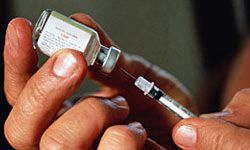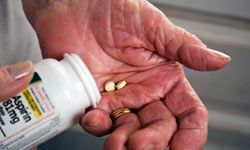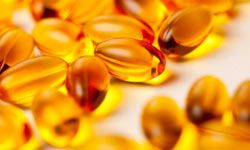In cages at McMaster University in Hamilton, Ontario sit a group of mice who don't act their age. Unbelievably, they don't seem to be aging at all. For several years, the Canadian mice have been drinking a cocktail of 30 dietary supplements and vitamins. The concoction seems to be keeping the rodents young [source: Food & Fitness Advisor].
Scientists say the mice that were given the anti-aging cocktail had an unusual spring in their step. They had no loss of physical activity compared to a group of mice who didn't imbibe. In fact, those mice showed a 50 percent decrease in physical activity [source: Food & Fitness Advisor]. Astonishingly, the combination of vitamins and supplements lengthened the lifespan of the rodents that took it by 11 percent. Did the Canadian scientists discover the legendary Fountain of Youth? If you are a mouse, they did. But the McMaster researchers say the cocktail probably wouldn't work as well in humans [source: Dye].
Advertisement
For better or worse, whether we like it or not, all of us age. It's a natural, unpleasant fact. Why we age is open to conjecture. While molecular biologists know that our cells age at different rates, they don't know exactly why. They suspect that environmental factors, such as smoking, stress and exercise have something to do with it, and they also think genetics plays a role, too [source: Harrell].
No matter the reasons, many of us continue trying to stay young. That's why the sale of anti-aging lotions, supplements and other products is expected to top $291 billion by 2015 [source: World Health.net].
Do these supplements work? What's the science behind them? While some might help your body function more robustly, the research behind most anti-aging supplements is based on common sense, rather than science. Our bodies, for instance, need coenzyme Q10 (CoQ10) to keep running. Because CoQ10 decreases significantly with age, it makes sense that maintaining proper levels of the substance would make us healthier [source: Mayo Clinic].
The effects of most anti-aging supplements have not been studied, and some could even be harmful. Most doctors agree that the best way to combat the effects of aging is with a proper diet and exercise. Yet, that doesn't seem to stop us from trying anything to hold back the Grim Reaper. Read on to find out the top five supplements that claim to keep you young.


